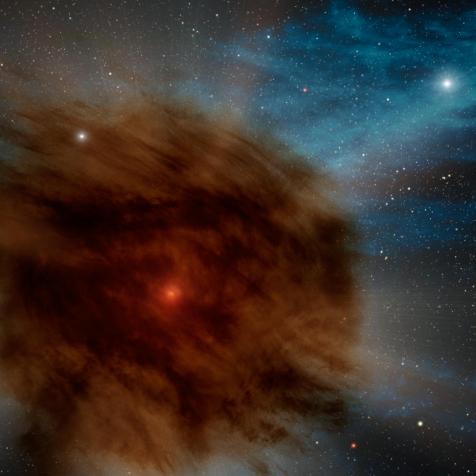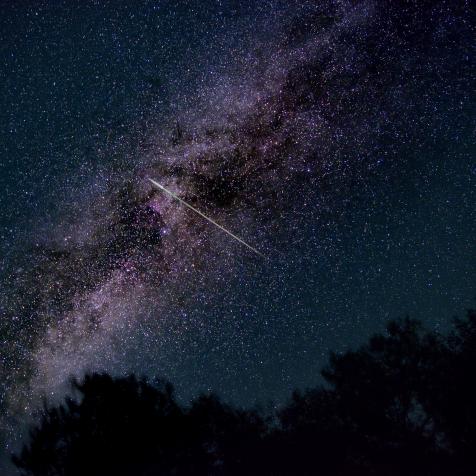
Maxar/ASU/P. Rubin/NASA/JPL-Caltech
There’s Gold in Them Thar... Asteroids?

Gold had to come to Earth from somewhere, right? So why not outer space?
We all love gold, and through the millennia we’ve scoured the face of our planet for that precious yellowish metal. Sometimes prospectors find nothing more than a few golden bits in a stream. Sometimes they hit paydirt–a massive vein making for easy pickings.
But unfortunately for all those gold hunters, most of that metal is buried deep under the surface of our planet, basically inaccessible. But maybe instead of looking down, they should look up.

The gold in our planet came from somewhere, right? That element was a part of the primordial solar system, part of which eventually became the Earth, and part of which eventually became…random chunks of rock floating around aimlessly. And some of those rocks have a little bit more gold than average.
A Miner's Dream
Take, for example, the prospector’s dream known as 16 Psyche. 16 Psyche is an asteroid, hanging out between the orbit of Mars and Jupiter. It’s not the biggest one in the belt, about 120 miles in diameter (roughly the distance between Los Angeles and San Diego). 16 Psyche is known as an M-type asteroid. In the weird and wonderful jargon of astronomy, “M-type” is short for “metallic type”.
How many metals? Well, at current market prices, 16 Psyche contain enough gold and other precious metals to be worth roughly $700 quintillion, which is enough to give every single human being on this planet a private fortune of nearly a hundred billion bucks.
Cause for a Mission

Maxar/ASU/P. Rubin/NASA/JPL-Caltech
Artist's concept of the Psyche spacecraft, which will conduct a direct exploration of an asteroid thought to be a stripped planetary core.
NASA is sending a mission to 16 Psyche, set to launch in 2022 (but it won’t get there for a couple years), but it’s not going to dig up gold. It’s going to study the asteroid (no, not for a future big-dig mission, so stop asking), because 16 Psyche has an interesting history. Most asteroids are either dirt lumps with a little bit of ice or ice lumps with a little bit of dirt.
But 16 Psyche is neither–it’s metal. Astronomers suspect that the asteroid is really the leftover core from a blasted-out almost-planet. It suffered some horrible catastrophe before it ever got a chance at greatness. By studying the asteroid, astronomers can gain some precious (ha–metal joke) clues as to the formation of our solar system.
If you want to go gold mining on 16 Psyche and gobble some of those quintillions for yourself, I’m afraid you’re not going to get as rich as you think you might. For starters, the gold is in the asteroid, and the asteroid of tens of millions of miles away. Do you have to get there, dig it up, and return big chunks of it back to Earth–something that nobody has ever done before, and might just cost a little bit of money to do.
Additionally, that value of the gold in 16 Psyche is based on the current market value, which is in part due to its relative scarcity. If you were to dump millions of pounds of the good stuff on onto the market, its value just might drop. Still, people might find exciting and interesting uses for all that gold, eventually returning its value.
It’s worth a shot.
Paul M. Sutter
Paul M. Sutter is an astrophysicist at Stony Brook University and the Flatiron Institute, host of Ask a Spaceman and Space Radio, and author of How to Die in Space.



















